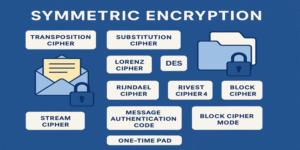In both academic and professional environments, research skills are fundamental for critical inquiry, problem-solving, and evidence-based decision-making. Defined broadly, research involves the systematic collection, evaluation, and interpretation of information to enhance understanding and generate knowledge (Saunders et al., 2019). The ability to conduct effective research not only supports successful academic outcomes but also empowers individuals to navigate the increasingly complex information landscapes of the digital age. This article explores the nature of research, the core competencies required for effective research skills, and the importance of credibility, referencing, and the role of libraries and online databases.
What is Research?
Research is more than simply gathering information; it is a structured process of inquiry aimed at developing understanding and solving problems (Creswell & Creswell, 2018). Research can take many forms, including reading books and articles, conducting interviews, administering surveys, making observations, and running experiments (Bryman, 2016). For instance, a business student may carry out surveys to evaluate customer preferences, while a medical researcher might rely on controlled experiments to test new treatments.
The unifying principle across these activities is that research is systematic, evidence-based, and goal-oriented. Unlike casual information gathering, research requires critical evaluation of sources, integration of multiple perspectives, and structured presentation of findings.
What are Research Skills?
Research skills refer to the competencies that enable individuals to locate, evaluate, interpret, and use information effectively. According to Booth et al. (2016), good research skills involve the ability to:
- Identify relevant sources of information quickly and efficiently.
- Think critically about the quality and reliability of information.
- Communicate findings clearly in written and oral forms.
For example, a student writing a dissertation on climate change must evaluate peer-reviewed scientific studies, government reports, and news articles while distinguishing between credible and unreliable sources. As the PowerPoint suggests, effective research skills ultimately make individuals “smarter” by transforming raw information into meaningful knowledge, which in turn equates to power in both academic and professional spheres.
Sources of Information
Reliable research depends on access to quality information. Key sources include:
- Institutional Libraries – These provide access to books, journals, and databases unavailable through standard search engines. Libraries often use the Dewey Decimal System to organise books, enabling efficient retrieval (Mann, 2015).
- Online Databases – Platforms such as EBSCOhost, Emerald Insight, and JSTOR contain peer-reviewed journal articles that are essential for academic writing (Tenopir et al., 2016). Unlike open web resources, these databases provide curated, credible, and citable
- Primary Research – Methods such as surveys, interviews, and experiments allow researchers to generate original data tailored to specific research questions (Cohen et al., 2017).
- Search Engines – While tools like Google Scholar can be useful, caution must be taken to distinguish between credible academic sources and less reliable web content (Beel & Gipp, 2010).
- Local Libraries – Local libraries can be a useful source of information. They provide books, trusted online resources, and free computer and internet access.
For example, a psychology student may consult their institution’s digital catalogue to find a textbook on cognitive behaviour, then complement it with peer-reviewed articles from EBSCO and empirical data from their own field survey.
Using the Library Effectively
An academic library is a critical hub for research. Textbooks, academic monographs, and reference materials provide foundational knowledge. Most libraries now integrate digital catalogues that allow users to search by title, author, subject, or keyword, making resource discovery efficient. Additionally, librarians play a crucial role; their expertise in navigating catalogues and databases makes them invaluable “information professionals” (Stevens, 2017).
Online Research and Source Credibility
The internet has revolutionised research, but it presents challenges of credibility and reliability. Unlike peer-reviewed journals, many websites are unverified, biased, or outright false. For instance, websites such as “malepregnancy.com” (as highlighted in the PowerPoint) demonstrate the absurdity of unverified content. Similarly, essay-selling websites like Ukessays.com are problematic because they lack academic integrity and encourage plagiarism (Walker & Townley, 2012).
Indicators of a credible source include:
- Clearly identified author.
- Availability of publication date.
- Evidence-based arguments supported by citations.
- Use of neutral and logical language (Metzger & Flanagin, 2013).
Conversely, sources without authorship, dates, or showing bias and emotional language should be avoided. For instance, a headline declaring “Immigrants are destroying the economy” reflects bias and lacks evidence, while a government report on migration patterns would be more reliable.
Examples of credible online sources include:
- Government reports (e.g., Office for National Statistics).
- University research centres (e.g., Oxford Internet Institute).
- International organisations (e.g., United Nations, World Health Organization).
Evaluating News and Media Sources
While newspapers can offer valuable insights, they are often influenced by editorial bias. Media literacy requires recognising bias, sensationalism, and misinformation. According to McNair (2017), news can be categorised as factual reporting, opinion, or propaganda. For example, an investigative report in The Guardian may provide credible insights into climate policy, whereas a tabloid article relying on gossip should not be treated as a reliable research source.
Harvard Referencing and Academic Integrity
The Harvard referencing system is one of the most widely used citation styles in academia. It ensures that sources are properly acknowledged, preventing plagiarism and demonstrating academic integrity (Pears & Shields, 2019). A typical in-text citation includes the author’s surname and year of publication, e.g., (Smith, 2020), with full details in the reference list.
Example:
- In-text: Effective research requires critical thinking and source evaluation (Booth et al., 2016).
- Reference list: Booth, W.C., Colomb, G.G. and Williams, J.M. (2016) The craft of research. 4th ed. Chicago: University of Chicago Press.
By using Harvard referencing, students not only credit original authors but also provide a pathway for readers to verify claims and explore further readings.
Developing strong research skills is essential for success in education and beyond. Effective research involves systematic inquiry, critical thinking, and source evaluation. Academic libraries, online databases, and credible internet resources provide the foundation for reliable research. At the same time, vigilance is required to avoid misinformation, bias, and unreliable sources. Finally, proper use of the Harvard referencing system ensures integrity and academic professionalism.
Ultimately, research skills empower individuals with the ability to navigate an overwhelming information landscape, transforming information into actionable knowledge, which in turn drives both personal and societal progress.
References
Beel, J. and Gipp, B. (2010) ‘Academic search engine spam and Google Scholar’s resilience against it’, Journal of Electronic Publishing, 13(3), pp. 1–23.
Booth, W.C., Colomb, G.G. and Williams, J.M. (2016) The craft of research. 4th ed. Chicago: University of Chicago Press.
Bryman, A. (2016) Social research methods. 5th ed. Oxford: Oxford University Press.
Cohen, L., Manion, L. and Morrison, K. (2017) Research methods in education. 8th ed. London: Routledge.
Creswell, J.W. and Creswell, J.D. (2018) Research design: Qualitative, quantitative, and mixed methods approaches. 5th ed. Thousand Oaks, CA: Sage.
Mann, T. (2015) The Oxford guide to library research. 4th ed. Oxford: Oxford University Press.
McNair, B. (2017) An introduction to political communication. 6th ed. London: Routledge.
Metzger, M.J. and Flanagin, A.J. (2013) Credibility and trust of information in online environments. Cambridge, MA: MIT Press.
Pears, R. and Shields, G. (2019) Cite them right: The essential referencing guide. 11th ed. London: Red Globe Press.
Saunders, M., Lewis, P. and Thornhill, A. (2019) Research methods for business students. 8th ed. Harlow: Pearson Education.
Stevens, C. (2017) ‘The evolving role of the academic librarian in research support’, College & Research Libraries, 78(2), pp. 180–191.
Tenopir, C., Dalton, E. and Christian, L. (2016) ‘Perceived value of scholarly articles’, Learned Publishing, 29(4), pp. 295–301.
Walker, J. and Townley, C. (2012) ‘Contract cheating: A new challenge for academic honesty?’, in Bretag, T. (ed.) Handbook of academic integrity. Singapore: Springer, pp. 525–538.









